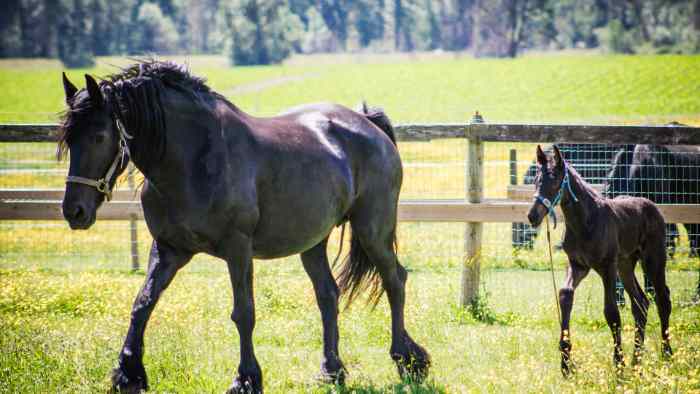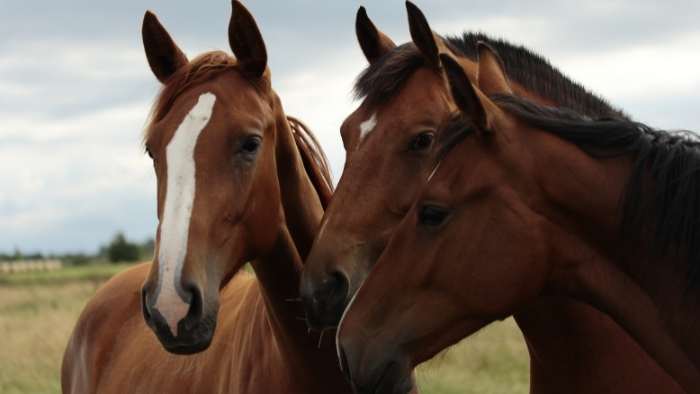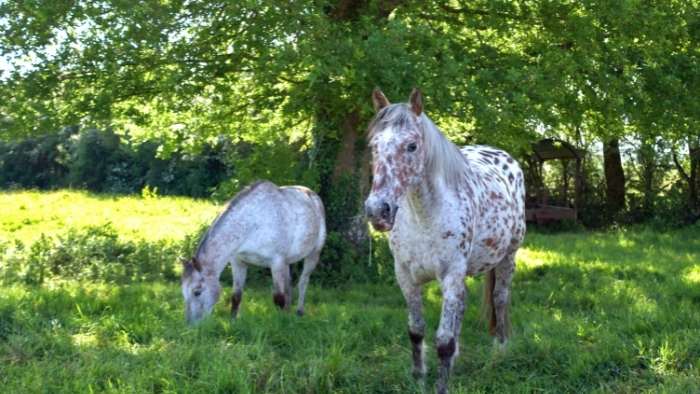It sounds like an otherworldly phenomenon, so asking if you can clone a horse is totally normal! There are many myths surrounding cloned animals, but we bring the facts!
The thought of cloning a horse, or any other animal for that matter, may seem like a far-fetched idea. Even with the most advanced technology, the idea of cloned animals walking amongst others might seem unreal in this world.
In this article, I share the facts about cloning horses and surprise you with some sensible reasons why breeders would be interested in doing this. Read on!
Can You Clone A Horse?
While it’s not common to do, cloning a horse is entirely possible!
Technology has changed a lot over the past two decades, making cloning and cloned horses and bloodlines a far more acceptable idea.
Cloning plays an integral part in preserving otherwise lost genetic lines.
Reason Why Breeders Clone Horses
Breeders usually choose to clone horses of superior bloodlines. This is often done to preserve valuable bloodlines, where the horse may have died or has been gelded before being bred. The science of cloning can also be used to preserve the genetic material of rare or endangered breeds.
How Horses Are Cloned
Clones are genetically exactly the same as the original horse. A tissue sample is taken from donor horses to produce clones. The DNA-containing nucleus of their cell is transferred into a donor egg that had its DNA removed.
A recipient mare is impregnated with the egg and then carries the resulting foal to term.
The Pros And Cons Of Cloning Horses
The Advantages of Cloning a Horse
- Cloning can create balance under horse breeds by repopulating endangered or extinct species.
- Cloning horses can allow more food security in countries where these animals are used for meat.
- Cloning horses may advance scientific discoveries about the animal.
- A cloned horse’s tissues or organs can be used when necessary.
- Cloning horses could help owners find comfort, giving them a way to preserve memories.
The Disadvantages of Cloning a Horse
- Cloning horses is not an effective way of reproduction.
- Cloning horses isn’t cost-effective.
- Cloning horses can lead to a reduction in genetic diversity.
- Cloning horses can lead to an increase in cancer-related issues.
- Cloning horses cause higher levels of embryo destruction.
Facts About Cloning And Cloned Animals
Here are some interesting facts about animal cloning you might not know!
- Cloning is an artificial process used to produce genetically identical animals through biotechnology.
- Many animals can naturally produce clones through asexual reproduction, requiring only one parent.
- Animals can be cloned through reproductive cloning, gene cloning, and therapeutic cloning: reproductive cloning produces a copy of the animal, and whole gene cloning uses segments of their DNA. Therapeutic cloning is used to produce embryonic stem cells.
- The first animal clone was an Asian Carp in 1963.
- In 1983, a house mouse was cloned through an embryonic cell.
- The Roslin Institute cloned Dolly the Sheep in 1996.
- In 1997, a flag named Gene was cloned by The American Breeders.
- CopyCat is the first cat cloned. This brown and white domestic shorthair cat was cloned in 2001.
- The first horse clone was named Prometea. This horse’s cloning was done in Italy by the Laboratory of Reproductive Technology in Cremona in 2003.
- In 2005, an Afghan hound named Snuppy was cloned.
- A camel was cloned in 2009 in Dubai.
- The Chinese Academy of Sciences cloned two crab-eating macaques in 2017.
Is It Legal To Clone Horses?
Yes, it’s legal to clone horses.
The rules around cloning differ between the various equestrian industries and studbooks. Cloning in the Thoroughbred industry is forbidden.
Clones and their progeny have been allowed to participate in the equestrian sport since 2012.
Can You Clone A Horse That Has Died?
It’s possible to clone a horse that has died.
Tissue samples should be collected as soon as possible after death. These samples are then frozen and can be used when necessary.
Horses That Have Been Cloned
While cloning is expensive, several famous horses have been cloned successfully.
- Gem Twist, a double Olympic silver medal-winning showjumper, has two clones on the ground.
- The 13-year-old Gemini CL stands in Europe and has sired several show-jumping progenies.
- The 10-year-old Murka’s Gem stands in Shropshire at the Stallion AI Services compound.
- Chilli Morning, a top Olympic eventing champion, has three four-year-old clones.
- Tamarillo, another eventing champion, has a clone named Tomatillo.
- The clones Cruising Arish and Cruising Encore were cloned from a famous Irish stallion named Cruising in 2012.
To Conclude
Cloning isn’t an everyday thing breeders do. It’s incredibly complex and costly.
If you’re a breeder wanting to clone one of your champion horses, this is definitely something that’s possible. With the right team on hand, your stud stallion or mare will live for generations to come.
There are different cloning methods to choose between. Depending on why you’d like to clone your horse, a specialized team can help you choose the best route.
I hope the information in this article was helpful and that you have a better idea of how cloning works. If you have any more questions or an interesting cloning story to share, post it in the comments!
FAQs
How much does it cost to clone a horse?
The cost of cloning a horse is around $90 000, subject to state taxes.
Do cloned horses have the same personality?
No.
A horse's personality is only partly determined by their genetics. While a cloned horse will have personality traits similar to the horse they were cloned from, the way you raise them will greatly impact their temperament.
What is the success rate of cloning horses?
The success rate of cloning horses is less than 3%, like with many other animals.
Can cloned horses reproduce?
Yes.
Cloned horses can reproduce just like any other horse would.



